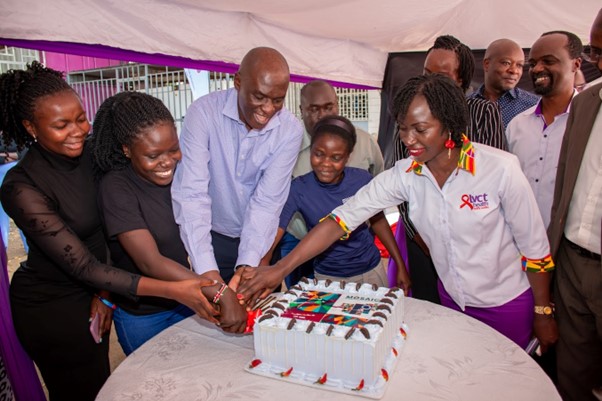
Kisumu County: LVCT Health, in partnership with the Ministry of Health, officially launched the #CATALYST (Catalyzing Access to New Prevention Products to Stop HIV), a MOSAIC (Maximizing Options to Advance Informed Choice for HIV Prevention) flagship product introduction study.
The study seeks to provide and assess for an enhanced service delivery package that includes oral PrEP, PrEP ring, and injectable cabotegravir to limit the spread of new HIV infections in the country.
Speaking at the study’s launch, Acting Director General at the Ministry of Health Patrick Amoth indicated that women were the program’s main target, as adolescent girls and young women contribute to nearly a third of the new infections.
In Kenya, the study is being undertaken in Nairobi, Mombasa and Kisumu counties to assess the implementation of an enhanced service delivery package providing a wide range of HIV prevention methods among women across the PEPFAR/USAID-supported delivery sites of the three counties.
Through the study, LVCT Health will use quality improvement methods to refine components and identify a core service delivery package for #PrEP choice among the project’s target population- adolescent girls, young women, and cisgender women- to prevent HIV and other infectious diseases.
With no HIV vaccine yet, scientists are now eyeing other HIV prevention innovations that they believe are key to achieving HIV prevention and treatment outcomes among populations at high risk of HIV infection.
Dr. Amoth called for the activation of local innovation to manage the HIV/AIDS pandemic in the wake of declining donor funding for HIV-related programs in the country.
“As a country, we must prioritize on right investments for HIV prevention and other public health-related challenges and that yield results for the country,” said Amoth.
He noted the overall progress that development and local partners in the health sector have made in ending the HIV epidemic as a public health threat since it was officially documented in Kenya.
“Despite the progress, HIV infections have been rising, especially among the youth and the adolescent population, and therefore, we need to do this study to inform us in terms of policy development and also new interventions that we need to put in place to break the cycle of new HIV infections,” Amoth stated.
The Director General lauded LVCT Health for always being on the lead to develop and test innovations towards ending HIV infections in Kenya.
Patriciah Jeckoniah, Snr. Technical Advisor Policy and Partnership and MOSAIC Lead said the project encourages new approaches and strategies for preventing the spread of HIV among young girls as a vaccine to cure the virus has not yet been developed.
“We are trying to look at a product which can prevent pregnancy and HIV because we are seeing a lot of young women being more afraid of getting pregnant than contracting HIV,” she said.
The dapivirine vaginal ring will be available in the six earmarked facilities by the end of June after they receive clearance from the Kenya Pharmacy and Poisons Board, making it the first biomedical ring prevention method for cisgender women and the first long-acting method, thus giving women the privilege to choose the #HIV prevention method that works best for them.
The dapivirine vaginal ring is made of flexible silicone and continuously releases the anti-HIV drug dapivirine in the vagina.
The event was attended by County Health Management Teams from Mombasa, Nairobi, and Kisumu, and representatives from the Division of National AIDS and STI Control Program, National Syndemic Diseases Control Council NSDCC and other local implementing partners.
LVCT Health is part of the Maximizing Options to Advance Informed Choice for HIV Prevention (MOSAIC) core consortium partners, which is comprised of Pangaea Zimbabwe AIDS Trust, based in Zimbabwe; Wits Reproductive Health and HIV Institute, based in South Africa; Jhpiego, a nonprofit organization affiliated with Johns Hopkins University; and New York City-based global HIV prevention advocacy group, AVAC.
The five-year (2021-2026) global project is funded by the U.S. President’s Emergency Plan for AIDS Relief (PEPFAR) through the U.S. Agency for International Development (USAID) to help adolescent girls and young women and other women* prevent HIV by accelerating the introduction and scale-up of new and emerging biomedical prevention products. FHI 360 is the lead partner in the consortium.

